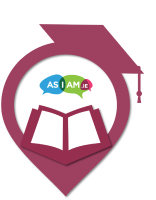Regardless of how you feel about starting college, you will likely have many perceptions of how it will look and what it will be. Maybe you have heard stories from an older sibling, maybe your secondary school has introduced you to what can be expected, or maybe you have acquired much of your knowledge regarding college life from the media and tv. While it may be helpful to listen to the opinions and experiences of others, it is equally helpful to remember that these opinions and experiences may not necessarily be your own. It is best to enter college prepared, but open minded; in doing this, you are minimising the unknowns of a new situation but preparing yourself to cope with these ‘unknowns’ when they do not turn out to be as expected.
“college is easy, it is much less work than secondary school”
College is different. It is true that you will probably have less classes than you had in secondary school, hence less time physically present, but this does not necessarily equate to less work. The majority of learning in college will not be done in the lecture hall, it will be done in the library or at your own desk. This means a lot of independent study, reading and research! The volume of work you recieve in college may also depend on your chosen course; it is important to do some background reading on your course so that you familiarise yourself with the workload involved.
“college is all about socialising”
It is as much as you make it. Being a college student does not mean that you have a mandate to go out socialising everyday of the week. Everyone has a different tolerance for this, take things at your own pace; perhaps merely being in an environment influxed with unfamiliar faces is enough. College populations are often vast, so when it comes to making friends, it can be challenging to know where to begin. Joining a club or society is a great way of meeting like minded people who are guaranteed to share at least one mutual interest with you! It may also be found helpful that clubs and societies, whilst social outlets, do maintain an element of structure.
“you will be completely independent”
You will certainly have more independence. In college, it is your responsibility to ensure that you are attending classes, staying on top of course material and submitting work on time; a lecturer will not chase you down for an overdue assignment as a school teacher would. However, it may be overwhelming to expect yourself to assume all the responsibilities of a completely independent adult from the offset of semester one. In starting college, you are already going through a major adjustment, it is okay to allow yourself to further develop your independence through experience and time. You should also remember that being an independent person
does not mean that you do not ask for help. On the contrary, independence is about being able to recognise that you are in need of assistance and taking the initiative to reach out to the people and services which may be able to help you.
Tips for managing your expectations
Open Days: Most colleges host at least two Open Days a year; attend as many of these as you can! Open Days can be valuable insights into third level life, even when you do not realistically see yourself attending that college. Avail of the opportunity to talk to current students and staff about their own experience; take a tour to get to know the layout of the campus and facilities which you can expect to find there.
Sample Days: Sample Days are essentially more immersive Open Days. They are run by most colleges throughout the summer holidays and are available to 5th and 6th year students. Sample Days are exactly what the name implies; a chance to attend lectures, eat in the cafeteria and just get a feel for the college environment before committing yourself. Some colleges also offer early induction weeks for students with disabilities. These are usually comprehensive introductions in which special attention is paid to helping students to adjust.
Know your Course: Make sure you research your course well. Most college websites offer detailed information regarding the duration of a course, the course modules (which are compulsory and which are optional), how many hours of lectures there will be each week…etc. It is important that you make yourself aware of this so that you know what will be expected of you throughout the duration of your studies. Pay attention to details such as how practical or theoretical a course may be, or whether it offers a work placement or a chance to study abroad. Knowing the intricacies of your course (as much as is made available to you) can help ensure you are choosing something that you really want to do.
